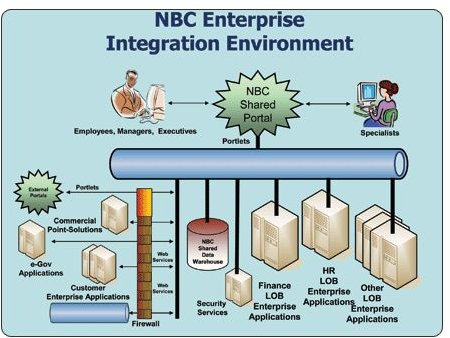Tips for Work Life Balance: Dealing with Children and Their Changing Behaviors
Understanding What Work-Life Balance is All About
Most of us, and not just the working moms, are confronted with the predicament of maintaining work life balance and dealing with children, particularly their well-being. Although it’s not something we constantly gripe about, it’s a nagging thought that’s often at the back of our minds.
Work life balance is the state of equilibrium between the amount of time we live our lives as a worker and as a family person.
Try imagining a balance scale and load the left-side with the amount of time you spend working and then load the right-side with the amount of time you spend with your family, particularly with your children. Naturally, if there is more time spent at work, the balance scales will teeter heavily to the left, while the right-side becomes raised. The vessel on the right-side seems to call attention to itself, as it swings precariously in mid-air due to lack of weight.
One of the reasons why we feel bothered is because we simply can’t put a finger to what exactly is troubling us. It’s logical that the left-side is heavier since work is necessary. More time at work equates to increased take-home pay, and the higher the paycheck received, the more financial relief is provided. In today’s economic state, employment does have a lot of bearing in terms of weight or importance. This is even true for the work at home parent.
If that’s the case, why, then, do we feel bothered that the right side seems unstable, as it sways with the slightest whiff of air? Could it be that we’re afraid that a stronger gush could cause the vessel’s contents to spill over or drop from where it is suspended?
First, since the right side represents our family life, we should identify which aspect or what part of our family life holds so much importance. Most working parents can easily relate to this by airing their concerns over their children. The nagging feeling can simply be expressed as a single question: “What’s the sense of getting financial relief, if it can’t help you deal with the problems you face regarding your children’s behavior, their well-being and their appreciation for the benefits derived from your work?”
Image Credit: derivative work: Mareklug at Wikimedia Commons
Work-Family Balance and Dealing with Our Children

As single individuals we had no problems about the equilibrium between our work and our family life, simply because we were at that stage where we were financially and personally independent. We no longer had to rely on our parents for financial support and we could make our own decisions, whether or not to heed our parents’ advice.
All these things had to change however, when we became committed to married life; perhaps, at one time the traditional set-up was still possible. Wives could stay at home to take care of the kids while the husbands went-off to work so there would be money to pay for food, clothing and shelter.
However, everything underwent another round of changes, the effect and extent of which were beyond our control. The hard part about it is that it also affected our children’s way of life.
Image Credit: Patsy Lynch for Wikimedia Commons
Working Parent’s Anxieties About Their Children

Our teenagers seem to be taking us less into their confidences. Although they appear to be happy, we’re not too sure anymore where their happiness is coming from. Where do they go? Whom do they hang out with? What’s keeping them busy? What kind of future is in store for them if they’re not taking their education seriously?
Some parents, though, may have different versions of these questions if their children are behaving in some other ways. Simple signs like nail-biting, poor eating habits, frequent nightmares or restlessness in their sleep, tantrums, lying, talking back, inability to make new friends or even keeping the old ones, are enough to make us feel bothered.
Why do we have to feel torn between work and staying home to nurse a sick child just because that would mean a reduction of our paychecks?
Image Credit: [David Shankbone](https://commons.wikimedia.org/wiki/File:Calhan_High_School_Seniors_by_David_Shankbon e.jpg) for Wikimedia Commons
Please continue to the next page for more on our reflections about work life balance - dealing with children and our anxieties about them.
Is Maintaining Work-Life Balance Possible?

Perhaps we are harping on the wrong issue—about forcing work and life to balance under a condition that does not allow it. Here’s a thought to ponder:
In 2011, the first African-American female Mayor of Atlanta, Shirley Franklin, was asked how she was able to manage work life and home life balance. Her answer was a simple: “I don’t”. “I’ve chosen this role and this work because there are things I want to accomplish. For now, I’m here to tell you, my life is not balanced.”
Her message was simple: We all make our own choices and those choices should be based on what has more importance to us. If our child’s well being is more important to us, however, it doesn’t mean that we have to forego the work that provides us financial support. It is a matter of finding ways to blend in our work based on our children’s needs, instead of our children’s needs fitting into our tight schedules.
Still, we have to consider our resources and our capabilities because not everyone shares the same conditions. The following sections are suggestions compiled from parents and human resources publications–not intended to keep work and life at equilibrium but as a means for alleviating some of the burdens brought about by the state of imbalance:
Image Credit: [Adi_Holzer_Werksverzeichnis](https://commons.wikimedia.org/wiki/File:Adi_Holzer_Werksverzeichnis_850_Lebenslauf-2 .jpg) for more Wikimedia Commons
Communicate with your Employer or Human Resources Manager

In communicating with your HR manager or employer, be aware that [work-life balance is a human resource issue widely discussed in their circle](https://commons.wikimedia.org/wiki/File:Adi_Holzer_Werksverzeichnis_850_Lebenslauf-2 .jpg). These individuals are the most logical persons to approach when seeking help for possible solutions on how to adjust your work schedules. Some of the known suggestions recommended by the human resources department as a form of their Employee Assistance Programs are:
Telecommuting arrangements by networking between home and office on a part time basis; take advantage of this advancement in technology where a private connection between your home and your office and co-workers could be set-up.
Flexible time – wherein employees are allowed to adjust their time based on their family’s need. If your child needs your attention and mentoring support after school, you could probably request an earlier time off to be offset by an earlier time to report for work. If there is later shift, trade some of the hours lost with another employee. In totality, the concept of flexible hours is where employees are committed to render a certain number of hours in a week, month or year without adhering to a specific time schedule.
Compressed Working Hours – Another working arrangement is where the number of hours for which you are required to report within a 5-day week period will be compressed within a shorter week. Let’s say the 40 hours of work performed for 5 days will be compressed to three days, and that would mean 13 hours in two days and 14 hours in one day at regular rates. This arrangement gives you an additional two days off, aside from the weekend you spend doing mostly household chores.
However, in bringing up this matter to your employer or HR manager, there are also considerations and conditions which you should meet or be prepared to meet.
- Your employer may review your performance and attitude toward work and determine if you merit such special concessions.
- You may need to sign an agreement that you will meet the standards required by the job in terms of efficiency and quality of output.
- Such arrangements are not feasible because they have been studied as not beneficial to your employer’s type of industry. In which case, you may have to consider other options.
Image Credit: Gautheron for Wikimedia Commons
Turn to the next page for other suggestions on work life balance - dealing with children, particularly their changing behaviors.
Consider Work-at-Home Jobs

Most businesses have found it advantageous to outsource jobs to offshore business process outsourcing units, but only to a certain extent. The concept of telecommuting jobs came about as a means to lessen problems brought about by language barriers or time-zone differences. In fact most telecommuting jobs are available to local candidates only, for reasons of accessibility.
-
You may be assigned to represent the company, or handle a project or job for a client, within your area. Some examples of telecommuting jobs include data entry, clerical jobs, transcription of medical records, sewing jobs, craftwork, or selling or marketing a product.
-
Some professionals like accountants, financial and business analysts, systems designers, store merchandisers, social workers, estimators, appraisers and investigators are also engaged in work where there is more flexibility with time spent at the office, which could be less. In this kind of work, your job as a professional comes highly recommended by former clients or employers, if the latter extends the job to you as a sub-contractor.
However, be discerning in accepting telecommuting jobs. It cannot be avoided that there are some unscrupulous individuals who will likewise take advantage of you and the free work you will provide. Asking for bank escrow arrangements is the best way to assure your compensation.
Image Credit: U.S. Department of the Interior, National Business Center at Wikimedia Commons
Finding More Time for Our Children – Will it Solve the Work Life Balance Issues?

Your children will greatly appreciate your presence and develop a stronger sense of security when coming home from school, where at least one of two parents is around the house. Most parents have observed that the mere presence of even one parent around the house makes some improvements in their children’s disposition and outlook on life.
Still, try not to be too optimistic of the results, should you succeed in finding more time to spend with your children.
-
In getting back into their lives, there have been changes which you cannot readily alter. Since you previously gave them some form of independence, try not to over-react by closing in on everything they do.
-
Bear in mind that some of your anxieties may turn out to be not unfounded at all, but try not to react with anger.
-
Learn how to reach out by asking advice from other parents who have been through the same situations, and assess your own dilemma. The Internet abounds with forums for different types of behavioral problems, and most parents seek out and share experiences as a way of helping others.
-
Seek help from a professional counselor if necessary.
-
Perceive work-life balance & dealing with children as being there when your children need you the most.
Image Credit: Stefano Bolognini for Wikimedia Commons
References:
- Trunk, Penelope: Work-Life Balance is an Outdated Goal, posted on June 30 Bloomberg BusinessWeek - https://www.businessweek.com/business_at_work/work_life_balance/archives/2008/06/work-life_balan_1.html
- Parents.Berkeley.Edu: “You can’t have a pleasure without a pain’’ -
https://parents.berkeley.edu/advice/working/worklife.html - 2003 SHRM® Research Quarterly Work/life Balances Challenges and Solutions - https://www.ispi.org/pdf/suggestedReading/11_Lockwood_WorkLifeBalance.pdf
